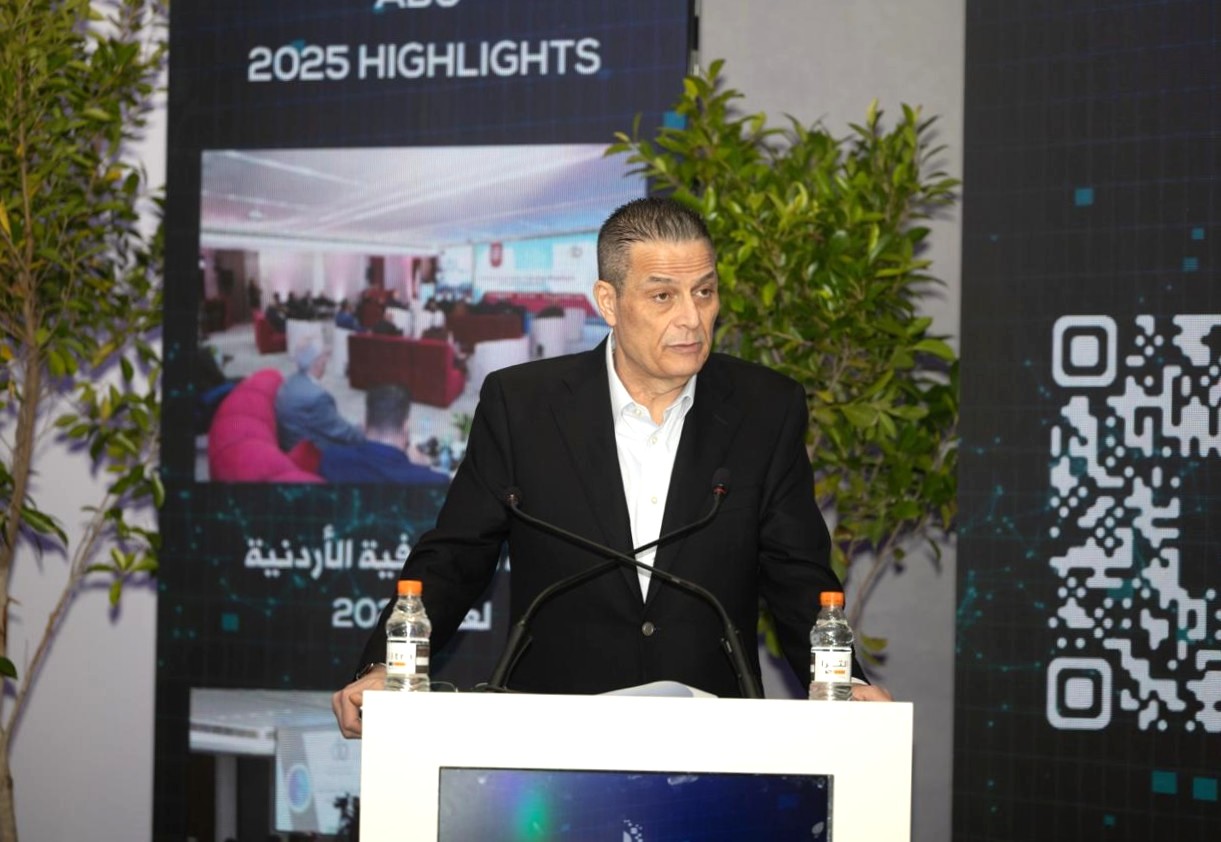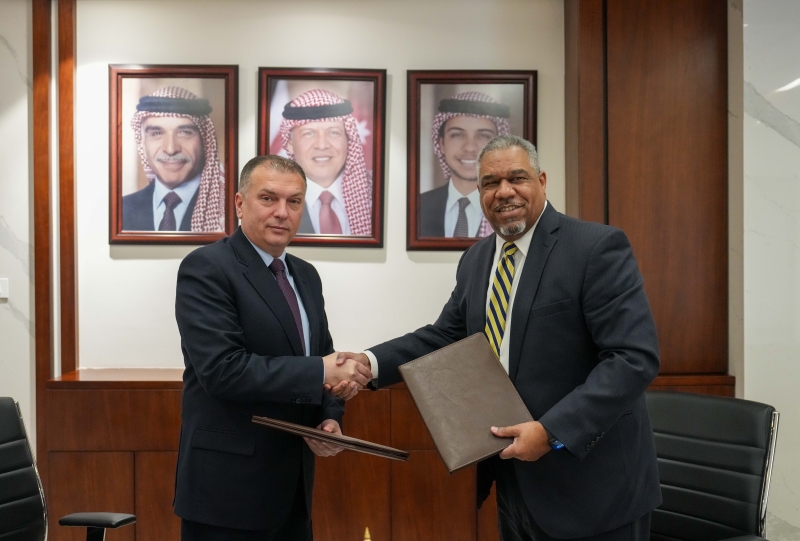
His Excellency Dr. Maher Mahrouq, Director General of the Association of Banks in Jordan, participated in the Second Honorary Professors Forum organized by the University of Jordan. The forum featured a rich dialogue on ways to develop university education to meet the demands of the labor market in light of rapid technological transformations. It was held under the theme: “Programs of the Future for Jobs of the Future.”
The keynote speech was delivered by Professor Dr. Basma Momani, Vice President of the University of Waterloo in Canada, who emphasized the importance of reconfiguring university education to bridge the gap between theory and practice through cooperative education and practical training programs. She stressed that the University of Waterloo adopts a model that provides students with funded training opportunities, which enhances their readiness for the labor market and encourages innovation.
Momani stated: “What we teach today may not be useful tomorrow, so we must harness artificial intelligence and continually update curricula,” pointing out that artificial intelligence has developed by 43% between 2022 and 2024.
The session was moderated by Dr. Maher Mahrouq, Director General of the Association of Banks in Jordan, who affirmed that the year 2025 marks a critical turning point in the nature of jobs, which requires integrating human and technological capabilities to ensure future readiness.
Professor Dr. Ashraf Abu Karaki, Vice President of Scientific Schools Affairs, emphasized in his remarks the importance of higher education regulatory bodies being true partners with universities in creating or modifying curricula, in a way that fulfills students’ comprehensive developmental goals and meets the needs of the labor market.
He pointed out that the University of Jordan is seriously working to bridge the gap between theory and practical application through the development of academic programs and by promoting an interactive approach to education.
A distinguished group of international academics from renowned universities participated in the session, including Professor Dr. Mohammad Obaidat from the University of Science and Technology in Beijing, who spoke about the importance of artificial intelligence in creating new jobs and enhancing research quality; Dr. Jennifer Scott from the University of Bristol in the United Kingdom, who highlighted the value of partnerships between universities and the health sector to advance pharmacy education, calling for greater community-oriented thinking and the integration of ideas into health policy; Professor Beverley Glass from James Cook University in Australia, who emphasized that teaching soft skills enhances students’ research capabilities and adaptability in work environments, noting the proven effectiveness of programs that connect theory to practice; and Professor Dimitris Tatakis sfrom Ohio State University in the United States, who discussed the integration of theoretical and practical education in dentistry, underscoring the importance of student excellence in a competitive job market and the role of universities in updating educational materials and linking health disciplines to entrepreneurship.
Also participating in the session was Professor Hazzaa Al-Hazzaa from Princess Nourah University in Saudi Arabia, who explained that graduates of sports sciences require practical skills in addition to academic qualifications. He emphasized the importance of interdisciplinary interaction in creating broader employment opportunities.
Likewise, Professor Isgouhi Kaloshian from the University of California, USA, addressed the role of modern technology in the agricultural sector, noting that the use of technologies such as drones has helped solve field challenges. He stressed the need to involve students in scientific research and to equip them with problem-solving skills. Meanwhile, Professor Pradeep Khanna from the University of Illinois, USA, shared his university’s experience in advancing agricultural education by linking functional skills with academic course content. He highlighted the importance of training instructors on how to teach students using modern technologies, pointing out that the University of Illinois was among the first institutions to harness technology in the agricultural sector. He also noted that the university had established partnerships with over 400 companies to develop jobs aligned with market needs.
He explained that the university’s research seeks to achieve tangible outcomes that positively reflect on society, emphasizing the importance of preparing students for the job market and equipping them with the tools of the era to ensure their professional success.
During the session, participants stressed the importance of updating academic programs, adopting interactive educational models that enhance students’ adaptability to the future, creating flexible learning environments that support the development of practical skills, and using technology to improve the quality of education—especially in the health, agricultural, and engineering sectors.
The session reflects the University of Jordan’s commitment to developing its programs in line with global transformations and enhancing its role in preparing qualified graduates who are capable of competing and contributing effectively in both the local and global labor markets.











